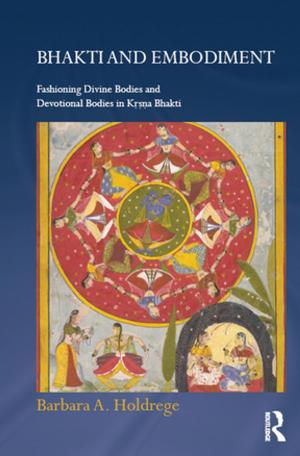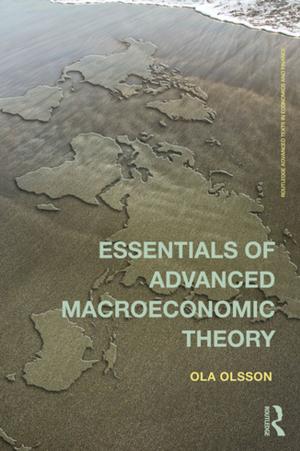Global Nomads
Techno and New Age as Transnational Countercultures in Ibiza and Goa
Nonfiction, Social & Cultural Studies, Social Science, Anthropology, Sociology| Author: | Anthony D'Andrea | ISBN: | 9781134110490 |
| Publisher: | Taylor and Francis | Publication: | January 24, 2007 |
| Imprint: | Routledge | Language: | English |
| Author: | Anthony D'Andrea |
| ISBN: | 9781134110490 |
| Publisher: | Taylor and Francis |
| Publication: | January 24, 2007 |
| Imprint: | Routledge |
| Language: | English |
Global Nomads provides a unique introduction to the globalization of countercultures, a topic largely unknown in and outside academia. Anthony D’Andrea examines the social life of mobile expatriates who live within a global circuit of countercultural practice in paradoxical paradises.
Based on nomadic fieldwork across Spain and India, the study analyzes how and why these post-metropolitan subjects reject the homeland in order to shape an alternative lifestyle. They become artists, therapists, exotic traders and bohemian workers seeking to integrate labor, mobility and spirituality within a cosmopolitan culture of expressive individualism. These countercultural formations, however, unfold under neo-liberal regimes that appropriate utopian spaces, practices and imaginaries as commodities for tourism, entertainment and media consumption.
In order to understand the paradoxical globalization of countercultures, Global Nomads develops a dialogue between global and critical studies by introducing the concept of 'neo-nomadism' which seeks to overcome some of the shortcomings in studies of globalization.
This book is an essential aide for undergraduate, postgraduate and research students of Sociology, Anthropology of Globalization, Cultural Studies and Tourism Studies.
Global Nomads provides a unique introduction to the globalization of countercultures, a topic largely unknown in and outside academia. Anthony D’Andrea examines the social life of mobile expatriates who live within a global circuit of countercultural practice in paradoxical paradises.
Based on nomadic fieldwork across Spain and India, the study analyzes how and why these post-metropolitan subjects reject the homeland in order to shape an alternative lifestyle. They become artists, therapists, exotic traders and bohemian workers seeking to integrate labor, mobility and spirituality within a cosmopolitan culture of expressive individualism. These countercultural formations, however, unfold under neo-liberal regimes that appropriate utopian spaces, practices and imaginaries as commodities for tourism, entertainment and media consumption.
In order to understand the paradoxical globalization of countercultures, Global Nomads develops a dialogue between global and critical studies by introducing the concept of 'neo-nomadism' which seeks to overcome some of the shortcomings in studies of globalization.
This book is an essential aide for undergraduate, postgraduate and research students of Sociology, Anthropology of Globalization, Cultural Studies and Tourism Studies.















